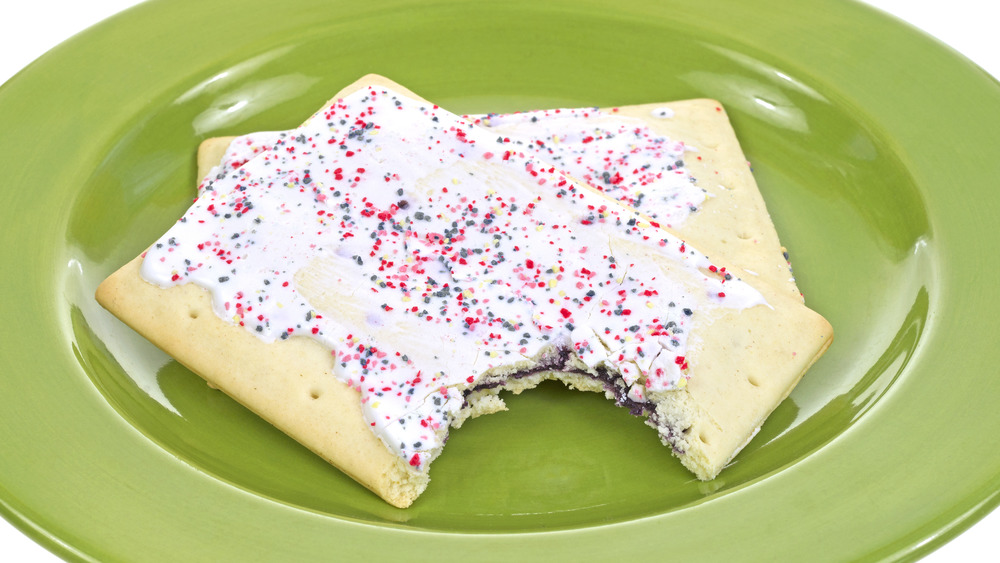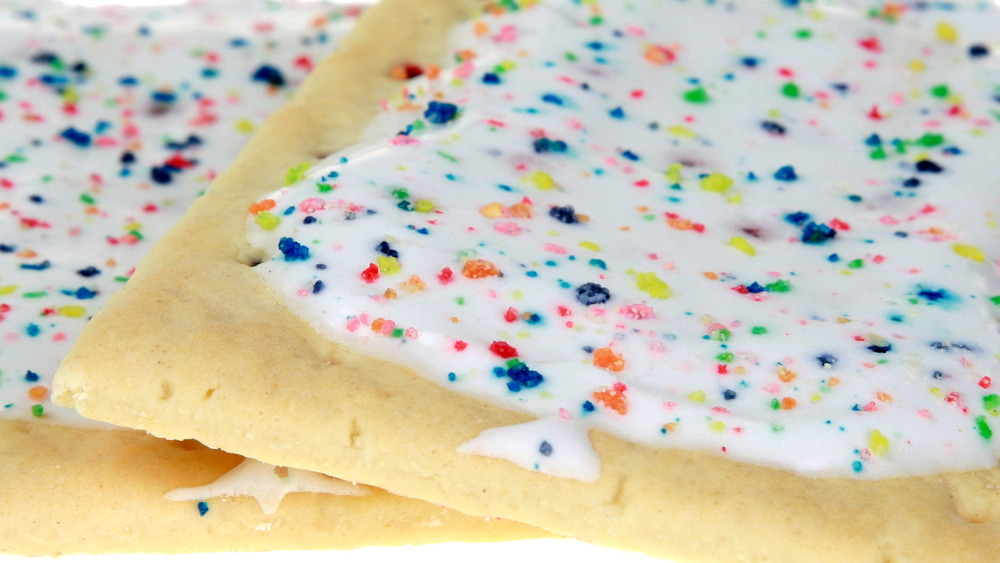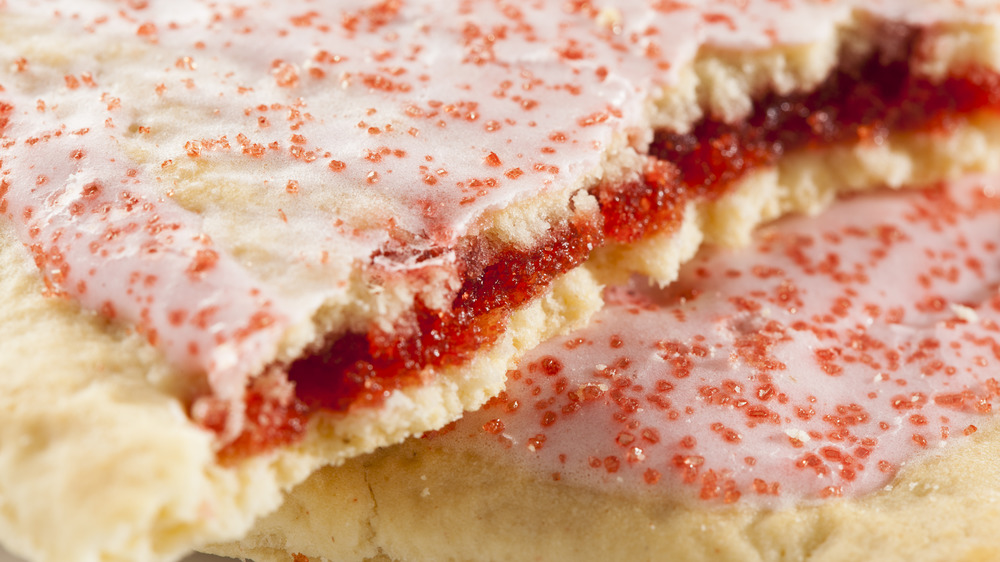Why You Should Rethink Eating Pop-Tarts
Remember that Family Guy song about Pop-Tarts? It goes something like this: "Have you ever put butter on a Pop-Tart? It's so freakin' good! Have you ever put butter on a Pop-Tart? If you haven't then I think you should" (via Youtube). Except, really, you shouldn't. Not according to AHND, TND, BCDNM, FDN-P, holistic health and nutrition expert Piper Gibson. Gibson sat down exclusively with Mashed to tell us just how bad a Pop-Tart is for our bodies. Before we dive in, let this serve as a trigger warning for all the Pop-Tart lovers reading this. Because Pop-Tarts, as it turns out, just might be worse for you than you realized.
Per Gibson, when you take a bite of a Pop-Tart, you're partaking in a "sugar extravaganza." Or, in plain English, Pop-Tarts contain "not only one but two forms of corn syrup, plus dextrose and sugar!" Gibson pointed out that the added sugar in Pop-Tarts (29 grams) is more than triple the American Heart Association's daily recommended consumption for adult men and nearly quadruple its recommendation for adult women. "In the liver, fructose is rapidly metabolized into glucose, putting extra strain on the liver," Gibson warned. Not only can eating Pop-Tarts contribute to a fatty liver, but frequent consumption may also wreak havoc on your blood sugar levels. According to Gibson, "Dextrose is chemically identical to glucose and elevates blood sugar levels, which can lead to type 2 diabetes." Yikes.
Pop-Tarts are designed to make you keep eating them
Having trouble quitting your Pop-Tart obsession? That's no mistake. Pop-Tarts are made using ingredients designed to make you hungry. So the next time you find yourself reaching for another two-pack of Pop-Tarts, blame the enriched flour that goes into them. In this case, "enriched" is a bit of a misnomer. What the word truly means, Gibson explained to Mashed, is that "the flour has been stripped of any nutrients, and synthetic nutrients have been added to replace them." She added that "when flour is processed, it is also stripped of fiber, which keeps you feeling full."
Pop-Tarts are baked using bleached white flour, which may ring alarm bells. Gibson said that bleached white flour "has been treated with chlorine, and chlorine can replace iodine in the body." Iodine deficiency isn't anything to sneeze at. It's directly linked to the enlargement of the thyroid, according to The American Thyroid Association. And when severe, iodine deficiency can cause serious complications for pregnant women. This isn't to say that eating Pop-Tarts has ever been linked to preterm deliveries. Nonetheless, the suggestion that the regular consumption of a popular snack food could reduce a crucial nutrient in the body is hardly appetite-inducing.
Pop-Tarts and their questionable ingredients
It's hard, obnoxiously hard, to find a naturally occurring ingredient on the back of a Pop-Tarts pack. Instead, the snack food is made to last on your shelves (through the apocalypse and beyond) using TBHQ. TBHQ, warns Gibson, is "a preservative known to cause liver enlargement, neurotoxic effects, convulsions, and paralysis in laboratory animals." And, in case that wasn't enough to put you off, there may well be a connection between TBHQ consumption and food allergies (via MSU Today).
Don't stop reading yet. "As if this delicious treat couldn't get any worse... Pop-Tarts are [chock]-full of artificial food colorings," says Gibson, pointing to red dye 40. This, she admonishes, "has been linked to ADD/ADHD and increased hyperactivity in children." Gibson also cited the research of Dr. Daniel Amen, which she said indicates that the dye "drastically impacts brain function." If so, such harrowing effects might help explain why red dye 40 is banned for consumption in Europe and Australia. It's not just the red dye you have to worry about, she said. "Blue dye number 2 has been linked to cancer in animals and increased behavior problems in children," Gibson told Mashed. In 2003, the FDA sent out a public health advisory documenting cases of "toxicity, including death" that resulted from critically ill patients consuming Blue No. 1.
Next time you're yearning after Pop-Tarts, maybe go for something homemade instead.


